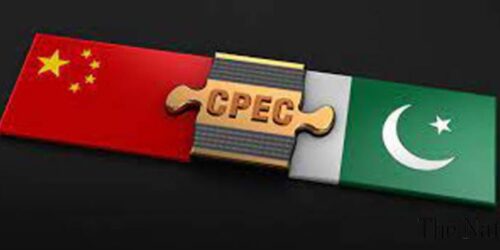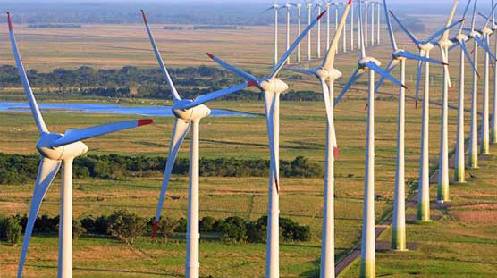The China-Pakistan Economic Corridor (CPEC) has not only turned Pakistan into a power surplus country but also cut the production cost of electricity, Khalid Mansoor, special assistant to the prime minister on CPEC Affairs, said.
Pakistan needs a lot of power for domestic and industrial consumers, and the nation’s main production technology depends on expensive imported furnace oil, Mansoor told Xinhua in an interview.
In the light of this situation, China invested in power plants in Pakistan and added 5,320 megawatts of electricity to the national grid at a lower cost.
“Now people do not face the long hours of load shedding, and the coal-burned power generation has reduced the overall tariffs as well. So we are very thankful to China for their cooperation,” he added.
Another significant contribution of CPEC to Pakistan is that it has improved the transmission and distribution of electricity, and cut the line losses through the state-of-the-art ±660kV Matiari-Lahore high-voltage direct current transmission project, which was completed despite Covid-19 challenges last year, he said.
Talking about CPEC’s role in the agricultural sector of Pakistan, Mansoor said it is among the major priorities of the current government, and for that purpose, the country wants to benefit from the experience and expertise of China.
He said that as the industrialisation process under phase two of CPEC moves ahead, more electricity will be used by the industrial sector, and the country will enjoy the perks offered by CPEC including import substitution, more exports and wealth creation.
Rejecting the allegations of CPEC increasing debt burdens on Pakistan, Mansoor said “the average cost of the debt for bigger infrastructure projects is much lower than commercial loans.”
He added that by removing the electricity woes of the country, CPEC has laid the foundation of industrialisation for Pakistan, which will enable the country to return all the loans including the Western ones through wealth creation.
Talking about the services given by the government to foreign investors including those from China, Mansoor said that all the legal and documentation procedures required for foreign investors will be done by a one-stop operation, thus saving procedural and processing time for them when they do business in Pakistan.
With the new development, investors already operating in the country will be very satisfied, and they will become good examples for new investors intending to do business in Pakistan, Mansoor said.





